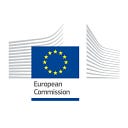How to respond to 6 Coronavirus myths you’ve definitely read online
The recent pandemic has led to a flourishing of misinformation. The European Union is working nonstop to tackle these untruths.

We’ve all been there.
A friend, a family member or a colleague is sharing information on the coronavirus crisis which we know isn’t true — but how can we respond to them? Well, first thing’s first — be patient and kind.
We are all dealing with an ever-changing and frantic news cycle whilst being trapped at home. In this difficult and often confusing situation, it’s easier than ever for disinformation and myths to spread across the internet and beyond, so being understanding is key. In this blog we equip you with the information you need to respond to these myths — and also make sure you check out these tips on how to respond to disinformation.
During this difficult time, the European Union has been working to fight these untruths and to counter them with clear, fact-checked, reliable information. Check out the EU’s Fighting Disinformation webpage for regular, updated debunks that tackle the most pervasive disinformation out there.
Here’s a round-up of the facts that debunk the 6 most prevalent myths from across Europe:
Fact 1. There is no link between the coronavirus and 5G technology
The EU has the highest consumer standards in the world. It is the reason that we can walk into a shop and feel confident in the products we buy. 5G is held to these incredibly high standards. Also, the EU exposure limits for the general public are at least 50 times lower than what scientific evidence would suggest as having any potential effect on health.
There is no connection between the 5G and COVID-19. The coronavirus is a virus that is spread from one person to another through droplets that people sneeze, cough or exhale.
Read more
Fact 2. No one is using the coronavirus crisis as an excuse to impose mass vaccinations
Unfortunately, there is as yet no vaccination or cure for coronavirus. While the EU actively promotes the fact that vaccines work, there are no plans to impose mass vaccinations. On the other hand, there are plenty of people spreading unscientific anti-vaccine claims. These claims prey on emotions and fear, causing significant harm to public health.
Read more
Fact 3. EU countries remain the best partners for each other — and are stepping up their solidarity
The European institutions, member countries and our partners are working together to help each other during these difficult times. You can find many examples of European solidarity where countries and regions across the EU are stretching out a helping hand to neighbours, helping those most in need.
While the EU does not have any say in public health matters, there are many other things we can do. Every tool at our disposal is being used to fight the coronavirus –keeping borders open for supplies, having a forum to coordinate and share experiences, large amounts of financial, medical and personnel assistance and much more.
Read more
Fact 4. There is currently no known cure for the coronavirus
Health advice should only be taken from reliable and trusted sources, such as national public health authorities, the World Health Organisation (WHO) or the European Centre for Disease Prevention and Control (ECDC). Think twice before sharing any information that you see on social media about treatments and be sure to gather and cross-check information on new developments from trusted sources. We’re all in this together, and we must not fall for fake treatments.
Read more
Fact 5. Face masks are complementary to other preventive measures, and they should be used and disposed of properly
We must not let the use of face masks give us a false sense of security — they must be seen purely as complementary to other preventative techniques like washing hands and physical distancing and cannot guarantee full protection simply through their use.
You should always follow the advice of your national health authority, which can change as the situation develops and as new scientific evidence becomes available.
Read more
Fact 6. The source of COVID-19 is of natural animal origin
In times of crisis it is more important than ever to work together in solidarity with countries across the globe to fight the coronavirus. Disinformation over how this disease originated can easily damage vital international support networks and could in turn put many lives at risk. We must cooperate with others and recognise that so far there is no evidence for the coronavirus being man-made, either by accident or through purposeful manipulation.
Read more
